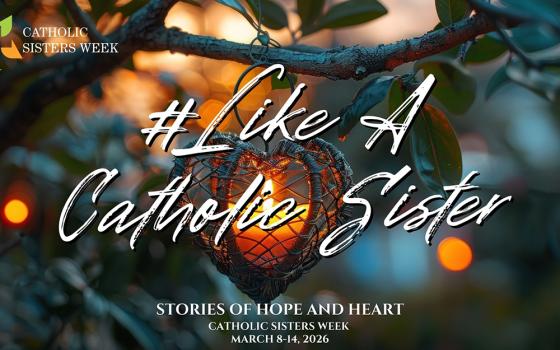This file photo shows a young woman from Michoacán who, due to violence, had to leave everything behind. She is sheltering in a shelter in Tijuana, Mexico while waiting for an asylum application hearing in the United States. (OSV News/Oscar Leiva, Silverlight for CRS)
U.S. authorities have been content, of late, touting the latest statistics showing lower numbers of migrants entering the country at the southern border. Instead of increasing, as some had predicted following the end of a Trump-era health rule, unlawful entries between ports of entry along the U.S. southern border decreased 25% from what they were a year ago, U.S. Border Patrol said June 20.
Cable news shows had warned of an unprecedented number of migrants crossing the border, a "crisis" looming as the Title 42 health restriction the Trump administration implemented in 2020, at the beginning of the coronavirus pandemic, ended May 11. But much of the foot traffic at many ports of entry along the southern border around that time was due to shopping for Mother's Day.
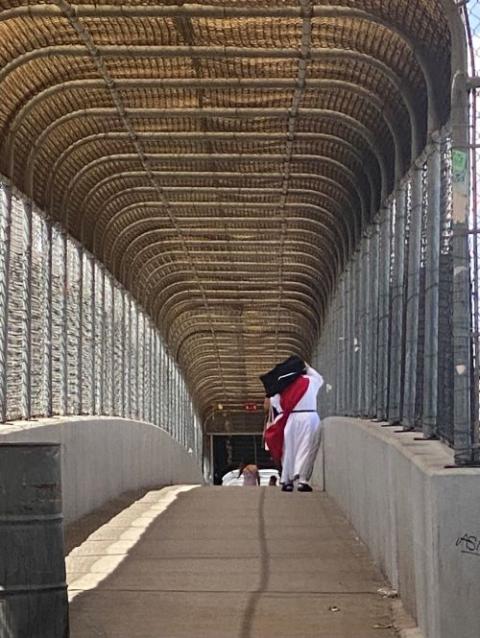
Sr. Maria Elena de San Jose, of the Sisters of Perpetual Adoration of the Most Sacred Sacrament, walks from Ciudad Juarez, Mexico toward El Paso, Texas, along the Bridge of the Americas May 13. (GSR photo/Rhina Guidos)
After the projected migrant crisis on the U.S. side failed to materialize, members of the Catholic Church, including many sisters, are reviewing the numbers to better assess how to help migrants and to talk about what they have learned and how to go forward post-Title 42.
The numbers may have decreased on the U.S. side, but in the border town of Piedras Negras, Mexico, "the number of migrants who have arrived and who keep arriving have increased" after Title 42, Franciscan Sr. Isabel Turcios said in a June 22 Zoom webinar to mark World Refugee Day.
"We're in a difficult situation on the border," she said during the presentation. "We're facing a big task."
Before Title 42, sisters at the Piedras Negras shelter put together lists they shared with authorities on the U.S. side, singling out some families who might qualify for asylum, as well as adults or children with special needs in their shelters. Many of them were able to enter the U.S. But when Title 42 expired and authorities pushed the use of the CBP One app to apply for asylum, "reality changed," Turcios said.
"It's like the lottery," said Patrick Giuliani, policy analyst with El Paso's nonprofit Hope Border Institute, who participated in the webinar. "There are people who secure a date [to book appointments to seek asylum in the U.S.] in a matter of days and others never get a date. You have people with sick children waiting for a chance (to enter the U.S)."
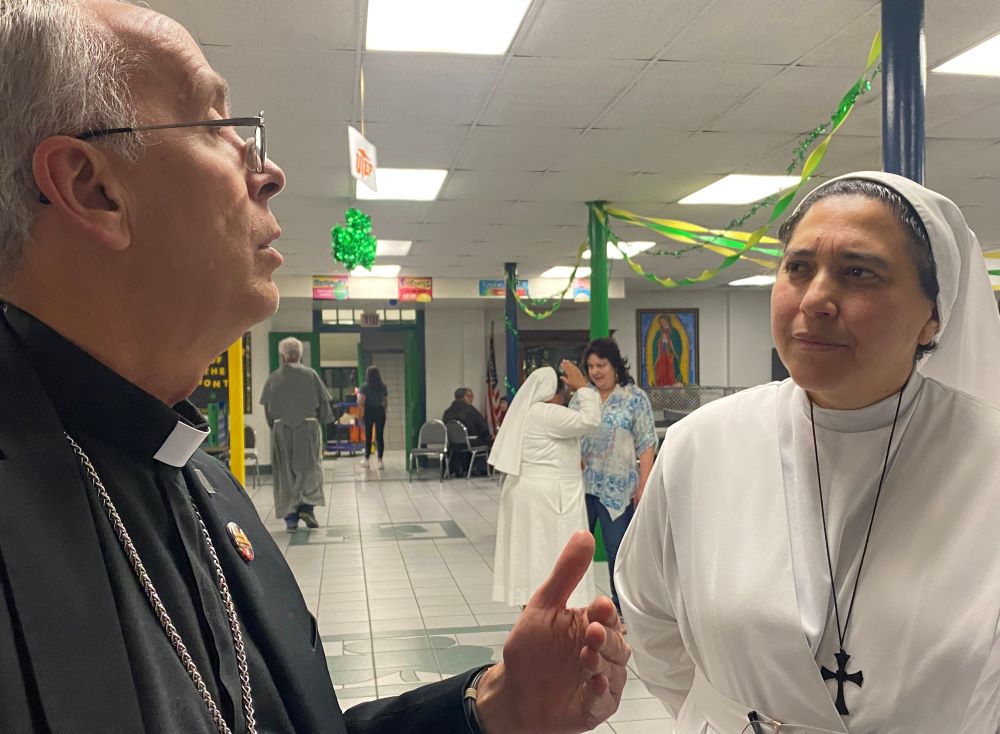
El Paso Bishop Mark Seitz speaks May 15 with one of the Servants of the Sacred Heart who helps migrants at a shelter in the diocese, after a prayer service for migrants at El Paso's Cathedral of St. Patrick. Sisters, with their organization and leadership, have been the backbone of the diocese's response, said Seitz, chairman of the U.S. Conference of Catholic Bishops migration committee. (GSR photo by Rhina Guidos)
In El Paso, as in other parts of the country, Catholic sisters have continued to pray for migrants and for their legal woes as other barriers have been erected to keep them out, Turcios said. All the while, many sisters continue to oversee work of shelters so that travelers have food, clothing, water, and sometimes a word of comfort or legal advice. But it's getting tougher to help them keep their spirits up given the rapid changes and the difficulties faced by those stuck on the Mexico side, she added.
The sisters' work at the border with migrants at the El Paso diocese has been invaluable, said Bishop Mark Seitz in Spanish during a May 15 prayer service at the city's Cathedral of St. Patrick.
"I've always said the work of religious women with immigrants has been the backbone of our response," Seitz, chairman of the U.S. Conference of Catholic Bishops' Migration Committee, told Global Sisters Report. "They have been so well-attuned to the need, so loving to those who are suffering, and they are willing to give of themselves so generously that they have been irreplaceable in terms of our response. Our people here are generous and willing to help, but the sisters bring an ability to lead and organize. I'm grateful."
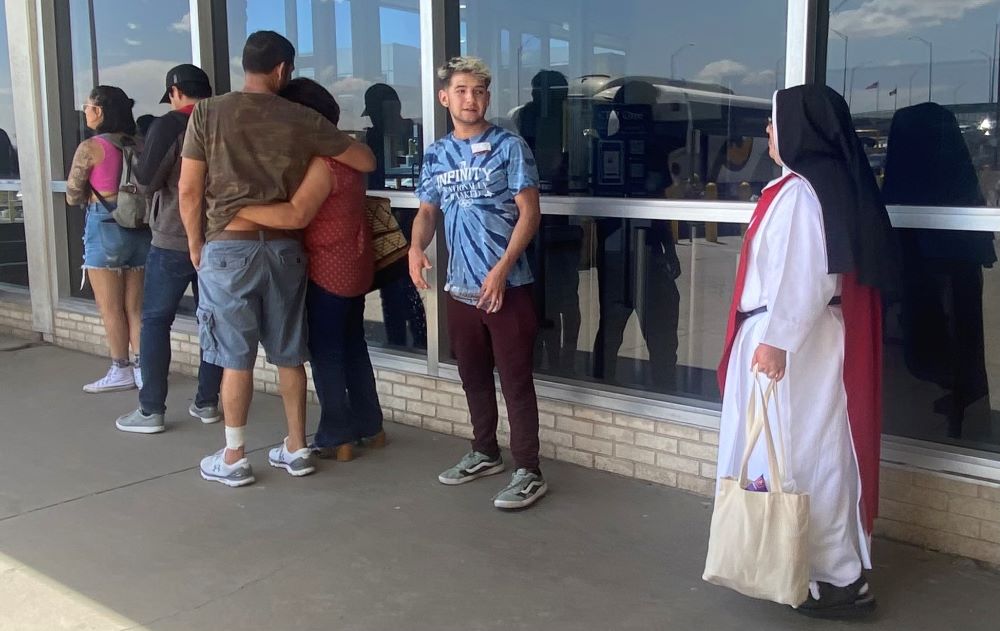
Sr. Maria Elena de San Jose, of the Sisters of Perpetual Adoration of the Most Sacred Sacrament, waits in line to cross into the United States at the Bridge of the Americas Port of Entry from Ciudad Juarez, Mexico, toward El Paso, Texas, May 13. She said her contemplative order prays so that governments can better help migrants. (GSR photo/Rhina Guidos)
Migrants have become increasingly desperate, Turcios said, as they navigate a new system, new rules that many along the border haven't yet figured out.
Sisters say their work isn't solely about the help they offer migrants but also about what the sisters, too, receive, the lessons learned from the weary.
"It gives you new life to keep on giving and keep on being with them," Sr. Joannes Klas, of the School Sisters of St. Francis, told GSR in El Paso shortly after Title 42 expired.
She attended the prayer event with Sr. Josefina Lopez and Sr. Arlene Woelfel, members of the School Sisters of St. Francis community, which tends to migrants on both sides of the southern border, including the neighboring city of Ciudad Juarez, Mexico, visible from El Paso in the distance. Catholic communities on both sides often speak fondly of one another, of their admiration at how each opens homes and hearts, and shows kindness to strangers as different waves of migrants pass through.
"Those folks hundreds of miles from here, they don't know what they're missing," Seitz said during the prayer service, which later turned into an opportunity to organize volunteers to help the diocese's migrant response. "They don't know the joy that can be found in our shelters, and on our streets when we have the opportunity to meet with Christ" in the form of the stranger.
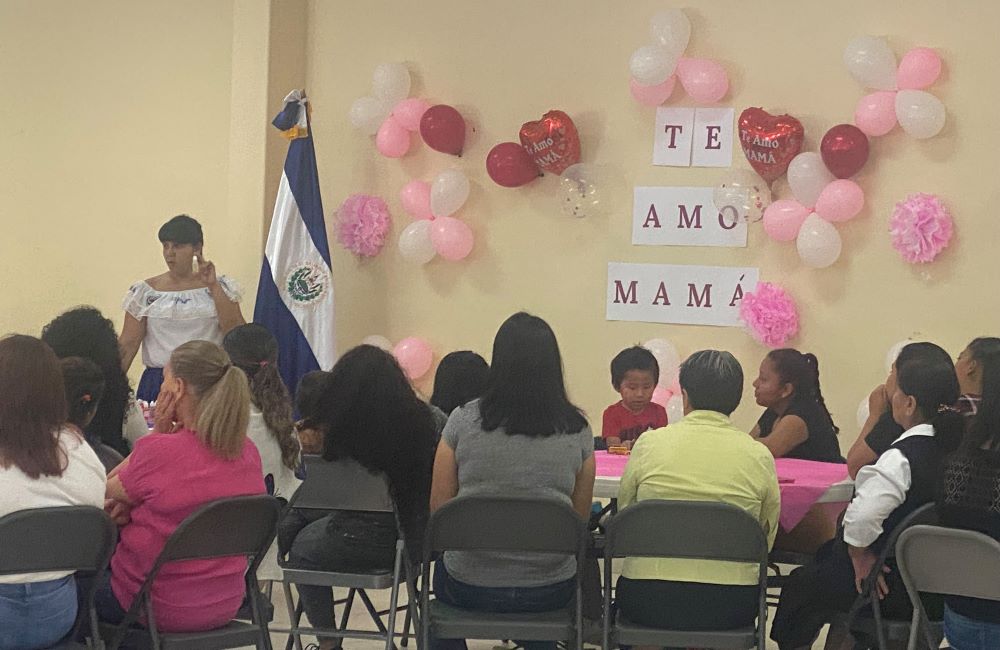
Sisters of the Congregation of Our Lady of Charity of the Good Shepherd join migrant women and children in a lesson on soapmaking sponsored by the Salvadoran consulate May 13 at Casa Eudes, where the women religious tend to migrants in the border city of Ciudad Juarez, Mexico. (GSR photo/Rhina Guidos)
It's a sentiment shared by Klas, who has worked for years with migrants, including a 9-year stint in a refugee camp in Guatemala. Her main job now, she said, allows her to spend time with migrants at a shelter.
"I walk around and do the visiting," she said. "You see the gifts that they bring to society."
For people near the border, it's an opportunity to live a "countercultural" life, Seitz said, joking with some of the baby boomers at the cathedral, asking during his homily whether anyone else remembered the '60s. "Do you remember that whole movement of countercultural revolution and those days of Aquarius?"
Today's counterculture is a revolution of brotherly love, he said, of building a world to help brothers and sisters who are migrating regain their dignity
"Don't let those things get in the way, the color of a person's skin, where you were born or weren't born, a person's religion, culture or language," he said, alternating between English and Spanish. "Don't let those lines [borders] divide us. They do not function as borders of our love."
While some sisters in El Paso spend time with migrants in person, others, like Sr. Maria Elena de San Jose, of the Sisters of Perpetual Adoration of the Most Sacred Sacrament, accompany them in prayer. Worried family members sometimes call the contemplative community asking for prayers and for particular petitions related to immigration, sometimes praying that a family member crosses the border safely. But the Sacramentine sister also focuses her prayers on the bigger picture.
Advertisement
"So that governments are enlightened, so that they figure out how to help them," she told GSR, shortly after walking across the Bridge of the Americas Port of Entry from Ciudad Juarez, Mexico, toward El Paso, Texas, May 13.
It's difficult to watch the drama unfolding, she said, but she prays for the migrants' well-being as well as for wisdom so that if they're offered opportunities to thrive in another country along the way, they reconsider making an unlawful crossing and listen to the voice of God, given the physical danger and possible loss of life they face trying to enter the United States.
"I pray for them so that they are meek … that they trust in our Lord, if they're offered a job in Mexico for a time," she said. "And if they come with a certain illusion, they will be allowed to enter and … continue fighting for their dreams. That's what they came for."
El Paso's warm reception over the years, and today, shows that the narrative about migrants in the U.S, often negative, can be replaced by the love of Christ and the teachings he left behind, Seitz said. Sisters "provide a good example" in that regard, he added, addressing those who gathered at the cathedral to see what they, too, could do to help, through prayers and deeds.
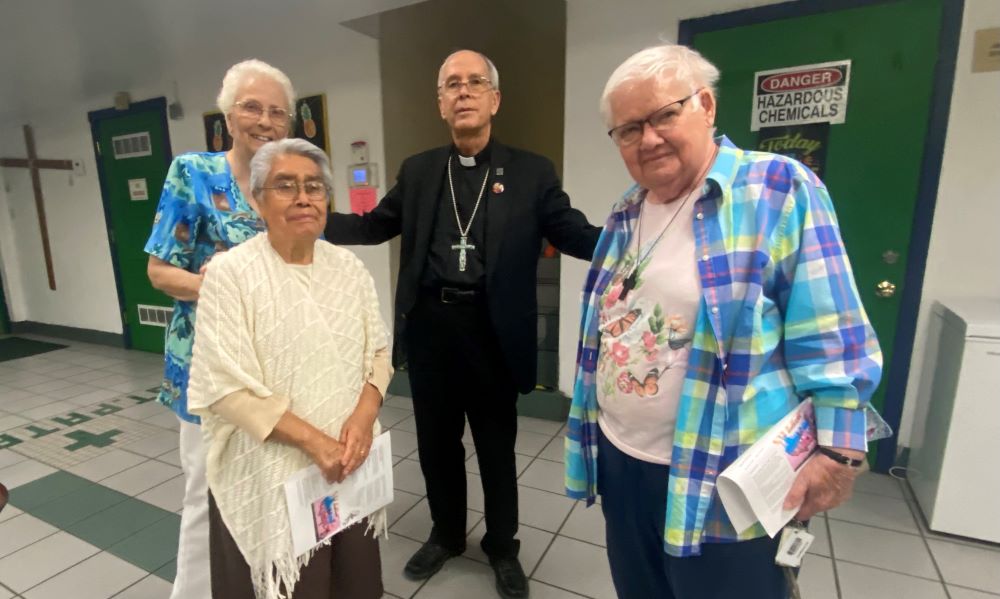
El Paso Bishop Mark Seitz poses May 15 for a photo with Sr. Joannes Klas, right, Sr. Josefina Lopez, left front, and Sr. Arlene Woelfel, back left, members of the community of School Sisters of St. Francis, who tend to migrants in his diocese as well as across the border in Ciudad Juarez, Mexico. Seitz said that women religious are the "backbone" of the diocese's work with migrants. (GSR photo/Rhina Guidos)
As Jesus said, 'Do not be afraid.' We're living right here in what many people have called the ground zero of the immigration movement and we work with those who are coming every day. Brothers and sisters, don't be afraid. Jesus has shown us how to love one another. Don't be afraid to live it, even though this world might reject us," Seitz said.
"If you are willing to love like that, then you're opening yourselves to a whole new set of possibilities, the ability to give of oneself, to discover the face of Christ, in [the person] you see, and whose teachings you follow," he continued. "Brothers and sisters, I feel so blessed to be here, and to be here now, in this moment. What love God must have for me — and you — to have given us this opportunity to live our faith in such a practical, concrete way: in service of our brothers and sisters."






